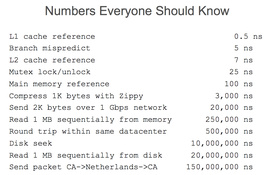The Stream
Lifestreaming
As some people already know, I recently launched my own lifestream (or Stream for short). In effect, my weblog will be updated even less often. My new stream is powered by the gLifestream platform.
gLifestream is a free lifestream platform and social activity reader. It is licensed under the GNU General Public License, version 3.
gLifestream joins several external and/or internal streams into a single one. External streams may be represented by RSS/Atom channels or popular services such as Twitter or FriendFeed. The user decides which of them are publicly visible and which are not. Public streams are visible for anybody. The rest of streams are visible only for logged in users.
Read more about GLS at glifestream.gnu.org.ua.
Got ticket for the Australian Pink Floyd Show in Warsaw :-)
Large Hadron Collider ready to restart - http://www.boston.com/bigpict...
Received my Google Wave invitation.
Playing misc Placebo's songs. I wish I have more guitars for different tunings. I hate changing it too often with only one.
It was a solid kickass 2h gig! :D They played so many great songs. I want it again :-)
At the Placebo concert. 30 minutes and counting!
One more Heavy Jack :) This time the nice Dire Straits' Six Blade Knife cover.
Hey Google, I have an idea: port Google Earth to PS3 so it would run smooth and look great at 1080p.
Drinking tasty Guaraná Antarctica.
Bandits In The Night by Heavy Jack
Got PS3 Slim 250GB... what a power! Downloading some demos...
(500) Days of Summer...
This May Be Over Someday by Hello Kavita
The Weirdest Clouds that You’ll Ever See - http://www.webdesignerdepot.com/2009...
Play framework - the first reasonable Java web framework I have personally seen. - http://www.playframework.org/documen...
Africa by Stab the Matador
![]() GDB 7.0 released
GDB 7.0 released
GDB 7.0, the GNU Debugger, is now available for download. There are many interesting improvements and bugfixes, but I find two new features worth a special mention. Those are "reverse debugging" and "Python scripting" support.
The first one allows to run programs backwards, written in any
language supported by GDB. Of course this isn't a trivial task, since
rewinding a program requires a lot of extra work on tracing variables,
registers and other stuff and not every target environment can support
that. GDB provides several new commands for reverse execution. Most
are just counterparts of the original commands, but prefixed with the
"reverse" keyword, e.g.
reverse-continue, reverse-step,
reverse-next, etc.
The latter feature allows for Python scripting with GDB by
providing the gdb module in the Python code. This
heavily extends GDB possibilities, from a simple pretty-printers,
through custom GDB commands, to any Python code you can possibly
imagine using GDB API. Someone even recently scripted
a "gdb
over irc" :-).
60 Examples of Beautiful Night Shots - http://www.hongkiat.com/blog...
Systems presentation by Jeff Dean: http://www.cs.cornell.edu/project...
Brave Men by The Impossible Shoelace
What a terrible weather. It's snowing... in October!
Reading High Performance MySQL, 2nd edition (700+ pages).
1 million fps Slow Motion video of bullet impacts made by Werner Mehl from Kurzzeit - http://www.youtube.com/watch...
This fall, new tv shows I like so far: Flash Forward and Cougar Town. FF has good cliffhangers just like Lost and CT is fast and witty.
Back to Krav Maga trainings after a summer break.









![[photo]](https://wojciechpolak.org/photos/data/small/small-ikmf-cert-p1.jpg)
![[photo]](https://wojciechpolak.org/photos/data/small/small-ikmf-cert-p2.jpg)






